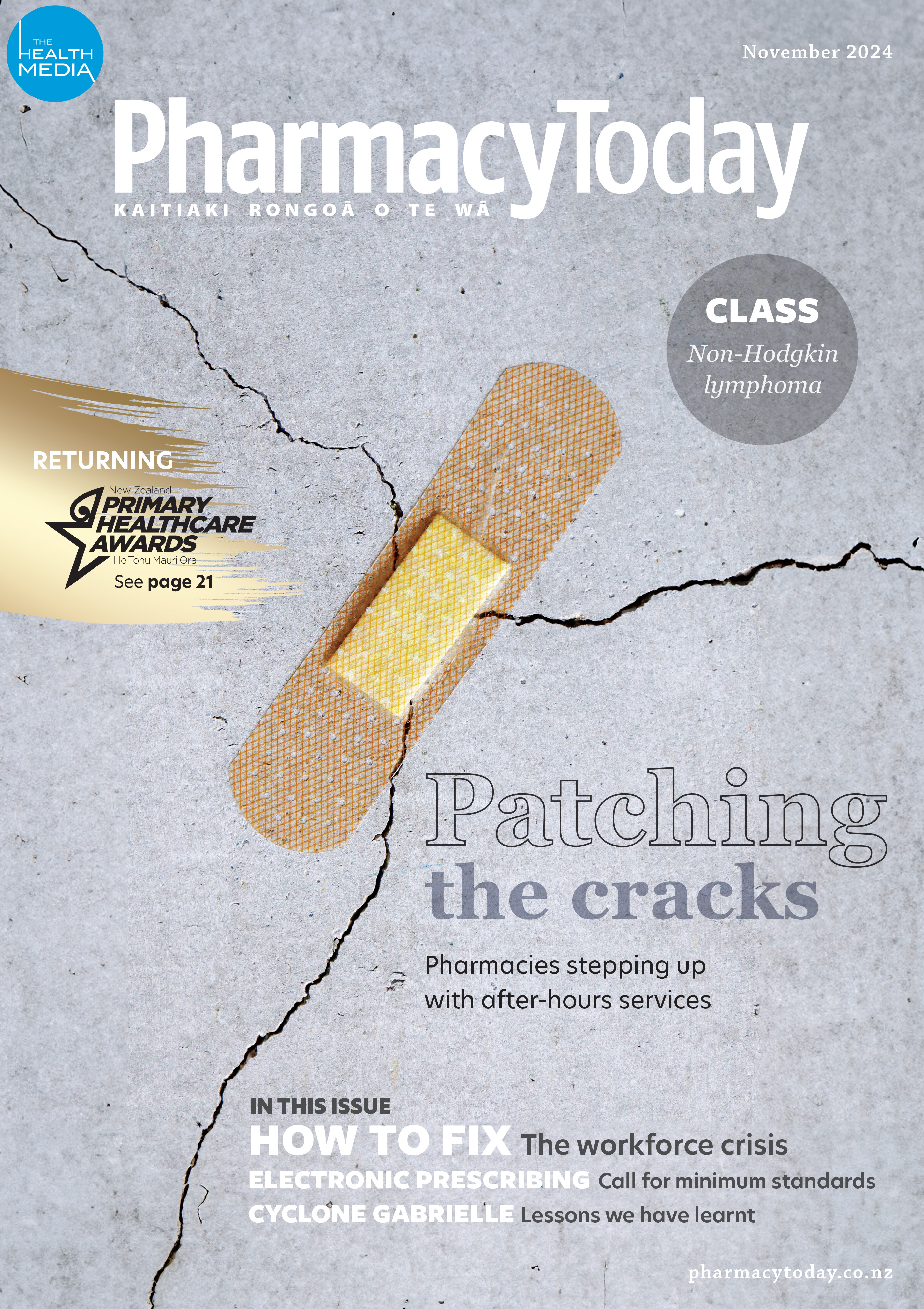Academic pharmacist Nataly Martini highlights the importance of understanding non-Hodgkin lymphoma and pharmacists’ roles in managing this condition
'Absolutely inadequate’ capitation increase shifts cost burden to patients, GP leaders fear
'Absolutely inadequate’ capitation increase shifts cost burden to patients, GP leaders fear

General practice has been offered a 4 per cent funding uplift by Health NZ Te Whatu Ora in their annual contract talks. Is this a sign of what is coming for the pharmacy sector at the upcoming National Annual Agreement Review (NAAR) meeting on Monday?
"And the Government [is] basically going to shift the cost of providing that GP care onto the patients, which none of us supports"
The Government expects patients to bear the brunt of the cost of the “absolutely inadequate” 4 per cent capitation increase through patient-fee hikes, say exasperated GP leaders.
General practice sector leaders shared their frustration today at the extremely late and “underwhelming” capitation offer, which many argue is the Government shifting more health costs onto patients.
PHO and general practice representatives have refused to endorse the Te Whatu Ora-proposed annual increase to the PHO Services Agreement and demanded a 20-day consultation period.
The 4 per cent Te Whatu Ora offer falls short of the 5.88 per cent cost-pressure calculation figure that health minister Shane Reti earlier said the Government aimed to “get close to”.
The budget-pinched agency has instead advised practices they can make up for the cost-pressure underfunding by increasing patient fees by up to 7.76 per cent which, when combined, would result in a 5.88 per cent increase in revenue.
Hauora Taiwhenua Rural Health Network chief executive Grant Davidson says the sector was “completely underwhelmed” by the offer.
Dr Davidson, a member of the sector’s capitation uplift working group, says the Government seems to have decided to impose more costs on the public rather than paying the full cost-pressure figure, let alone address past underfunding deficits highlighted by the 2022 Sapere report.
He says all three Coalition Government partners before the election said they would work to resolve that underfunding.
“But it [the offer] is not even keeping pace with inflation, and it’s a cost-shifting exercise to the general public who are already in a cost-of-living crisis.”
Dr Davidson says he was also frustrated at the “further degrading” of the small amount of rural support funding provided under the agreement by only increasing it by 4 per cent rather than 5.88 per cent.
General Practice Owners Association deputy chair Stephanie Taylor is warning of the risk of more practice closures after a capitation offer that “definitely falls short” of stabilising the already financially struggling sector.
“And the Government [is] basically going to shift the cost of providing that GP care onto the patients, which none of us supports.” Dr Taylor, a specialist GP, says expecting patients to pay for underfunding is increasing inequities as patients often cannot afford to pay more.
She says failing to invest in chronically underfunded practices will force them to increase fees or decrease the services they provide just to remain viable. GPs do not want to take either option, as both negatively impact patients.
“In an ideal world, we would have seen a double-figure investment just to stabilise general practice,” Dr Taylor says. She says GenPro will be surveying the practices it represents at the contracts forum, asking them what percentage increase they would accept.
General Practice NZ chair Bryan Betty says the offer “is absolutely inadequate” for sustaining general practice services in a sector in crisis due to longstanding underfunding.
“We know that a lot of practices are becoming marginal in terms of their sustainability, and this just adds to the pressure, and it certainly doesn’t take a step in addressing the pressure,” Dr Betty says.
The specialist GP says Dr Reti has indicated he is most interested in the 2025/2026 Budget. “However, that’s another year’s delay in sorting out the underlying funding problems.” Dr Betty says resolving the unsustainable capitation formula needs to be worked on as a priority.
“There’s absolute growing frustration at the situation,” including the offer’s expectation that patient-fee increases would compensate for the underfunding. “So, patients will bear the brunt again.”
Luke Bradford, the RNZCGP medical director, says the 4 per cent offer is patently below what is needed to rectify chronic underfunding.
Dr Bradford says the Te Whatu Ora offer acknowledges the specific financial struggles faced by VLCA practices and talks of potentially permitting these practices to raise fees for patients without Community Service Cards as well.
“[But] that places the [cost] burden on patients…and unaffordability will become an increasing issue for people.
“There is a concern by just saying you can raise your fees to cover your costs, it’s casting costs onto patients.” That puts patients at risk of being unable to access care or practices having to discount care or carry patient debt, he says.
WellSouth Primary Health Network chief executive Andrew Swanson-Dobbs says, in an emailed statement, that the funding offer “signalled a lack of commitment” by the Te Whatu Ora board to address the sector’s deep-seated underfunding.
“This will not address our southern challenges: our large rural population, our workforce pressures and, like other regions, our continued inequitable health outcomes.”







